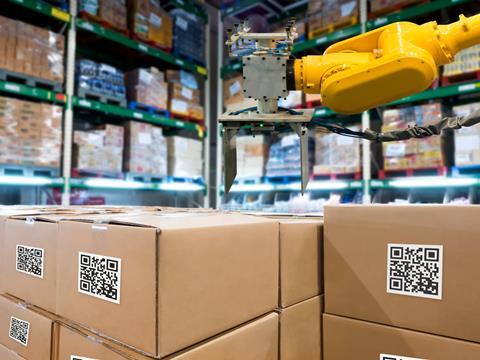
Leading data and analytics provider GlobalData has recently identified that digitalization in the packaging industry could become more influential than sustainability, as companies seek to mitigate the effects of inflation. Digitalizing supply chains will be imperative in ensuring companies can optimize efficiency and implement automation, a recent survey has revealed.
Sustainability has been an important focus for the packaging industry for the past few years, but digitalization could now take over as the key driver as supply chain efficiencies and proactive cost reductions are required for companies to ride out current inflationary pressures, according to GlobalData.
The global consumer packaging industry recovered to over 4.1 trillion packaging units in 2021 after a 1.0% decline during the pandemic in 2020. However, future growth in the industry will be dependent on companies being able to mitigate the effects of inflation on the supply chain, which may require a shift in strategic focus for some companies toward digitalization.
Digitalization combines various technologies, such as artificial intelligence (AI), 5G, the Internet of Things, and augmented and virtual reality (AR/VR), says the report, which appeared in Industry Intelligence recently.
Jenny Questier, senior consumer analyst at GlobalData, explains: “Sustainability has been at the top of many agendas, particularly as regulatory pressures have required companies to focus on compliance. However, the macroeconomic situation has shifted, and businesses simply cannot afford to ignore the cost implications that are resulting from rising energy and material costs.”
According to its 2022 Q3 consumer survey, 90% of global consumers currently state that they are concerned about the impact of inflation on their household budget, demonstrating that this is an unavoidable factor in purchasing decisions.
Questier adds: “Sustainability could now be viewed as somewhat of a luxury when it comes to packaging, as both consumers and customers may be willing to compromise on this to achieve the lowest possible price points for products.
“Packaging companies will be feeling the pressure from both rising costs in the supply chain and the reduced spending power of consumers, meaning that they will need to do as much as they can to cut costs in the middle and that will inevitably come through digitalization. The digitalization of supply chains will be imperative in ensuring packaging companies can optimize efficiency and automation.”
A key development in supply chain management over the next decade will be the integration of these digital technologies throughout the supply chain. For example, AI can be used for supply and demand planning to predict peaks and troughs more accurately and, in doing so, optimize inventory management, cost savings, and supply chain efficiency. This will also aid the movement from just-in-time delivery to just-in-case delivery to help maintain product availability at all times.
“Increasing digitalization in manufacturing can increase productivity, lower costs, and improve safety. The easiest way of digitalizing is starting with a single business process such as warehousing or front-end planning. Increased automation across all stages of the supply chain will improve resilience and reduce the risk of disruptions and help companies successfully manage costs and supply in the future,” she concludes.
This article was created in collaboration with AIPIA (the Active and Intelligent Packaging Industry Association). Packaging Europe and AIPIA are joining forces to bring news and commentary about the active and intelligent packaging landscape to a larger audience. To learn more about this partnership, click here.














No comments yet